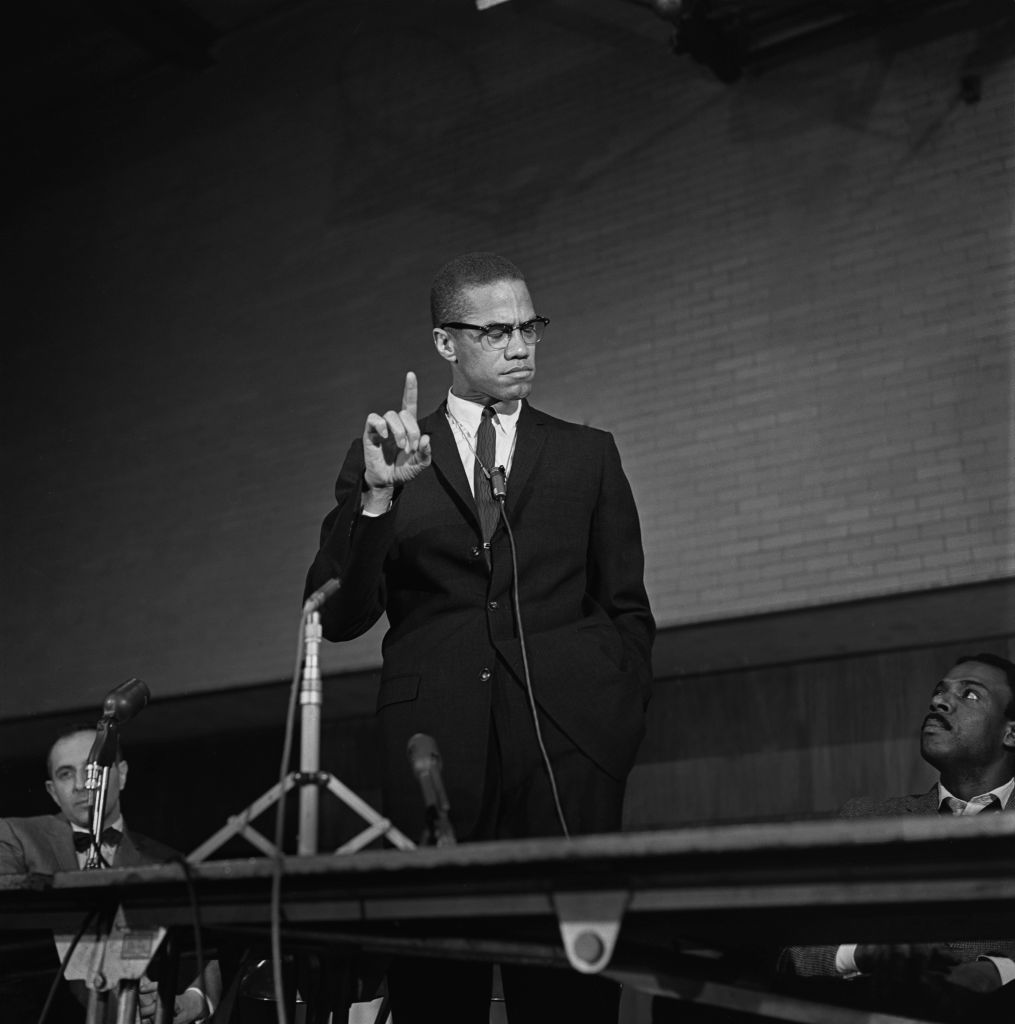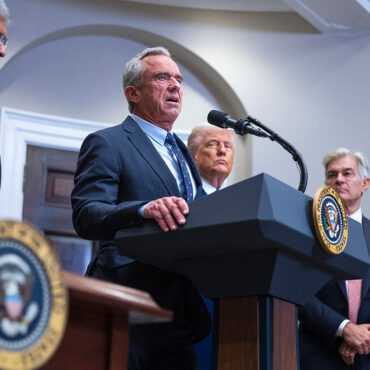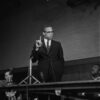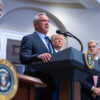-
 play_arrow
play_arrow
Fresh 106 Fresh 106
-
 play_arrow
play_arrow
London Calling Podcast Yana Bolder


Celebrating Malcolm X’s life and legacy offers an opportunity to reflect on his many lessons in resilience and resistance. He spent his entire life resisting intersecting systems of oppression, but he never wavered in his commitment to uplifting Black people at home and abroad.
Malcolm was firm in his demand for justice and equality. His experience as a Black Muslim living in America informed every move he made. Dr. Ilyasah Shabazz, Malcolm’s third oldest daughter, spoke with Omaha’s KMTV 3 News Now about the long overdue recognition of her father’s life and legacy. Shabazz expressed joy at people finally recognizing her father’s compassion and commitment to human rights.
She also briefly highlighted the new exhibit on Malcolm X at the Smithsonian National Museum of African American History and Culture in Washington, D.C., in an Instagram Reel. Erika D. Gault, Ph.D., the Director of the Center for the Study of African American Religious Life and the Lilly Endowment Curator of African American Religious History at the Smithsonian National Museum of African American History and Culture, spoke to Shabazz about the importance of the exhibit.
“This is sacred ground,” Gault said. “This is preserving a story of the people who sometimes their humanity was called into question. And this becomes a visible proof both of their humanity and their unique contribution to history.”
As I reflected on Malcolm X’s 100th birthday, I listened to several old speeches and thought about what my parents taught me about him. While there are new contours and complications, many of the same issues he spoke about and their impact on Black people are still present. Here are five lessons in resistance and resilience from Malcolm X’s teachings to consider as we celebrate his 100th birthday:
- Importance of Knowing
Growing up, many of us have heard the phrase knowledge is power. We grow our power by leaning into the importance of knowing. Malcolm’s evolution demonstrated the power and necessity of political education and being able to evolve when we receive new information and perspectives. It’s also important to understand the people we are lifting up and emulating. Speaking with NewsOne, Jihad Abdulmumit, chairman of the Jericho Movement, encouraged those commemorating Malcolm to remember the strength and grounding he received from his faith, even as he sought to work across religious communities.
“It gives you direction and grounding,” Abdulmumit said. “I’m a Muslim, and I’m also a member of the Black Liberation Army. So many brothers and sisters in the Black liberation movement accepted Islam, following the example of Malcolm, that became our motivating force.”
Understanding Malcolm X and how he became the man we admire is important as we seek answers and strategies to move our people forward.
- Self-determination and building Black political power
While many are familiar with Malcolm’s commitment to self-determination, his call for strategic political engagement and governance is often overlooked. During his speech at the first rally for the Organization for Afro-American Unity, Malcolm outlined a strategy for building independent Black political power, which included voter registration and voter education drives. He also called for running independent candidates who represented and reflected the values and interests of the Black community. His strategy echoes a similar sentiment as one outlined by Ida B. Wells-Barnett in her 1910 pamphlet “How Enfranchisement Stops Lynching.” Like Wells, Malcolm X understood the importance of securing ballot line access and supporting elected officials committed to uplifting Black people. Black-led power-building organizations like Action St. Louis, Detroit Action, Advance Carolina, and Milwaukee’s Black Leaders Organizing Communities embrace a similar approach.
- The odds don’t stop us
Malcolm spent his life defying the odds and often encouraged his supporters to do the same. He set big and bold goals that others may have said were impossible. When he formed the Organization of Afro-American Unity, he set out to unite over 20 million Black Americans. His demand that the U.S. be charged with human rights violations for the deplorable treatment of Black people in America was a shocking statement for the times. And yet, the odds didn’t stop him. Today, several groups have engaged the United Nations, similar to the strategy outlined by Malcolm before he was stolen from us. Documenting the mistreatment and injustices is important to eventual redress and restoration for Black people and others impacted by systemic oppression and white supremacy.
- Freedom and liberation require collective organizing
Through his short-lived work with the Organization of Afro-American Unity, Malcolm set forth a foundational principle for the need to organize as a collective and in collaboration with various groups. Further, he inspired a generation of young leaders who took his legacy and commitment to resilience and resistance into new organizations and movements. Malcolm X inspired generations of organizers who leaned into his calls for self-determination and human rights as a grounding framework. And people like Imam Jamil Al-Amin (formerly known as H. Rap Brown), and Organization of Afro-American Unity members Herman Ferguson and Sekou Odinga are among the many inspired by Malcolm who would go on to dedicate their lives to fighting for Black liberation, freedom, and justice. Ferguson, along with Jalil Muntaqim and Safiyah Bukhari, would later form the Jericho Movement among other notable contributions to the struggle.
- Grounding our work in a human rights framework
Malcolm recognized the collective struggle of oppressed people across the board. He often spoke about human rights as a framework for his organizing. He demanded respect for our humanity and independence, and encouraged Black people to seek out human rights, not just civil rights.
“The best thing that we can do, in my humble opinion, in commemorating El-Hajj Malik El-Shabazz, is to try to pick up the mantle of fighting for human rights,” Abudlmumit said.
Much of the work of the Jericho Movement and its partner organizations is grounded in a human rights framework. Abdulmumit said we are dealing with the same power dynamics that Malcolm X fought against.
“It’s the old saying, the more things change, the more they remain the same,” Abdulmumit said. “So honoring [him] has become just a motivator and a reminder for everybody, and I hope that we can be encouraged to study his life and see if we can be just as courageous and bold and studious and active as he was in trying to bring about change.”
SEE ALSO:
Malcolm X’s Childhood Trauma And The Case For Abolishing Family Policing
5 Facts You Should Know About Malcolm X
, Here are five lessons in resistance and resilience from Malcolm X’s teachings to consider as we celebrate his 100th birthday.,  , Read More, Civil Rights & Social Justice, The Willie Moore Jr Show, Willie Moore Jr. Show Trending, WMJS App, News Archives – Black America Web, [#item_full_content].
, Read More, Civil Rights & Social Justice, The Willie Moore Jr Show, Willie Moore Jr. Show Trending, WMJS App, News Archives – Black America Web, [#item_full_content].
Written by: radiofresh106
Similar posts
Featured post

Latest posts
Current show

True R&B
For every Show page the timetable is auomatically generated from the schedule, and you can set automatic carousels of Podcasts, Articles and Charts by simply choosing a category. Curabitur id lacus felis. Sed justo mauris, auctor eget tellus nec, pellentesque varius mauris. Sed eu congue nulla, et tincidunt justo. Aliquam semper faucibus odio id varius. Suspendisse varius laoreet sodales.
closeUpcoming shows
Chart
Copyright 2024 Fresh 106 All Rights Reserved















 Invalid license, for more info click here
Invalid license, for more info click here
Post comments (0)